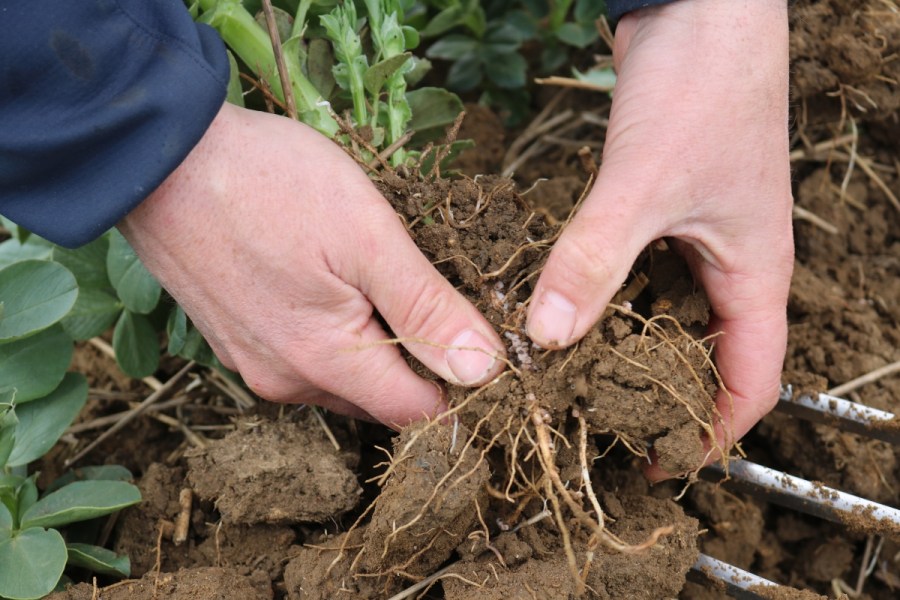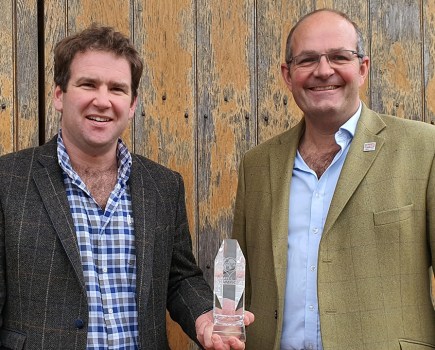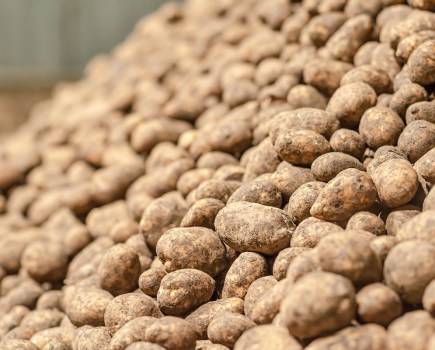As voting gets underway for Climate Change Champion 2021, CPM assesses the data and the discussion around arable soil’s capacity to sequester carbon.
It really is a win-win-win.
By Tom Allen-Stevens
If every arable farmer were to follow the same practices adopted by CPM’s Climate Change Champions, UK Agriculture would already be more than halfway to net zero.
This is what current carbon calculations suggest about the potential for arable soils across the UK to sequester carbon, according to figures submitted by the champions themselves (see chart below). However, the reliability with which soils in an arable rotation can sequester carbon has been called into question.
Over the past ten months, CPM has visited nine farmers who stepped forward as potential Climate Change Champions. With each one supported by one of our sponsoring partners, we’ve taken a close look at how they run their business and achieve impressive reductions in their carbon emissions. All businesses are the right side of net zero, with an apparent carbon balance that sequesters more than they emit.
But which is the best? CPM readers now have the opportunity to decide – during October, you get the chance to vote for overall Climate Change Champion 2021.
The farmers were asked to submit figures calculated by one of the available carbon tools to quantify the progress they’ve made. This showed an average amount sequestered across the 6775ha of 5.97t CO₂e/yr per ha. Multiplied up across the UK’s 4.4M ha, this would achieve a total of 25.5Mt CO₂e/yr, which would make a huge dent in the 45.6Mt CO₂e/yr UK farmers emit, according to official figures.
But just how reliable are these figures? Analysis of the data shows around 94% of the sequestration across the farms is apparently held in soil organic matter, achieved through improvements such as minimum soil disturbance, additions and cover crops.
NFU climate change adviser Ceris Jones notes that sequestration potential in UK arable soils is a “core area of continuing uncertainties that scientists, farmers and financers all want answers to”.
“Any measures to improve your soil is good for your business and improves productivity. But any CO₂ taken out of the atmosphere needs to be stored for a long time in the soil to have any effect on climate change.
“What is clear, however, is that if UK Agriculture wants to maximise its path to net zero, the speed and scale of transformation required is unprecedented. So the more farmers who adopt practices such as those followed by the Climate Change Champions, the better,” she says.
NFU hosted a soil carbon workshop recently at which leading scientists from across the UK summarised current thinking. It’s estimated UK soils hold a carbon stock of 4560Mt, a third of which is stored in managed grassland, points out Dr Anne Bhogal of ADAS.
When it comes to change of land use, Prof Pete Smith of Aberdeen University notes that switching pasture to crops loses most carbon – a drop of around 60% of a soil’s stock – while changing crop to pasture can build its stock by around 20%.
“If you add up all the potential sources of sequestration, it’s quite large – globally there’s a technical potential of 1.3Gt of carbon sequestered in soils each year, or 10% of fossil fuel emissions. But economically the potential is closer to 0.4-0.7Gt if you assume a carbon price of $20-100/t,” he says.
“But the carbon sink of the soil eventually saturates, it’s reversible and there’s leakage. However, there is huge potential to raise yield – increasing soil carbon by 1t/ha per year globally would raise productivity of major crops by 30-50Mt/yr. And soil carbon contributes to just about all UN sustainability goals, so it really is a win-win-win.”
- The Soil Carbon Workshop can be viewed at nfuonline.com. NFU is one of a number of organisations that have come together as the Agriculture and Land Use Alliance, hosting Countryside COP on 11-15 October, a week of events to showcase and inspire net zero activity in rural communities and agri-food supply chains ahead of COP26 in November. www.cfeonline.org.uk
To read more about the candidates for CPM’s Climate Change Champion 2021, head to cpm-magazine.co.uk/climatechangechampions/
VOTE NOW to have your say on who should take the title this year…




